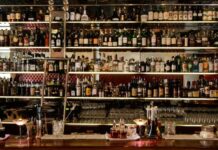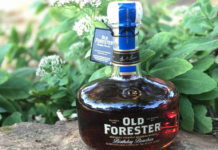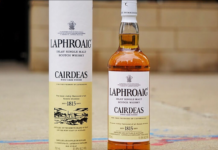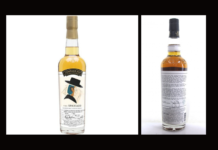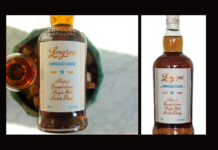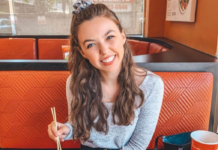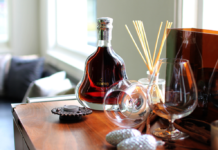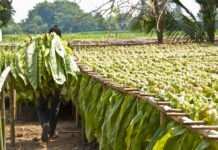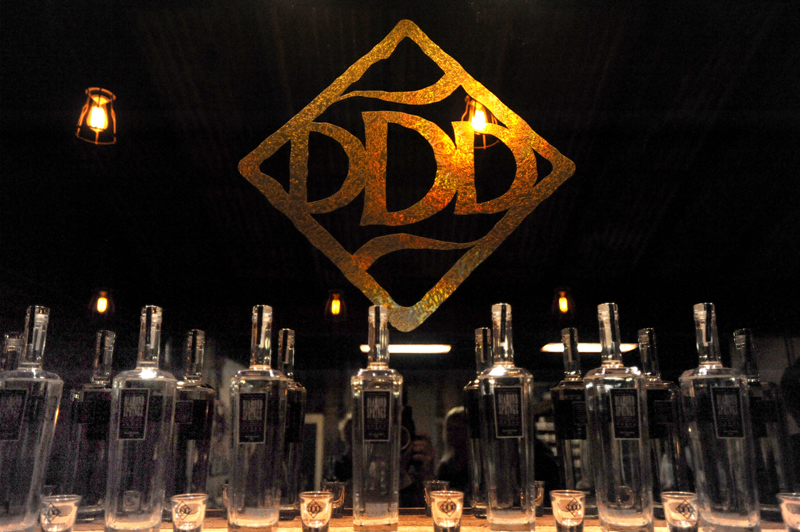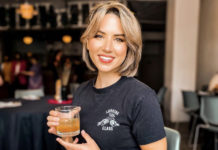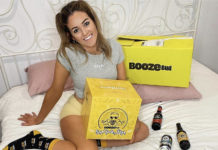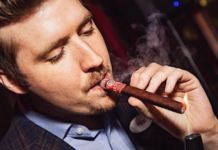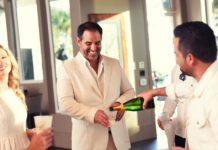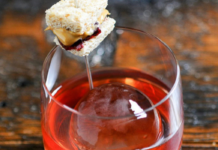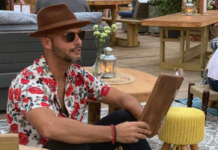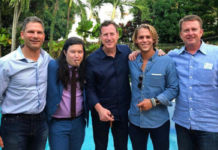Dry Diggings Distillery is located in beautiful El Dorado Hills, California. Our Northern California location is close to wineries, the gold country, Apple Hill, and the Sierra Mountains. We are a couple of minutes off of Highway 50 between Sacramento and Placerville on the way to either San Francisco or Lake Tahoe.
Our distillery is focused on locally produced farm fruit, grains and wine for our vodka, whiskey, brandy and bourbon. We work with local farmers, vintners and breweries to craft spirits that represent our unique area. We spoke to Cris Steller and his partner Gordon Helm, who founded the distillery together. They share their expressions, experiences and struggles in opening up and operating a whiskey distillery in California.
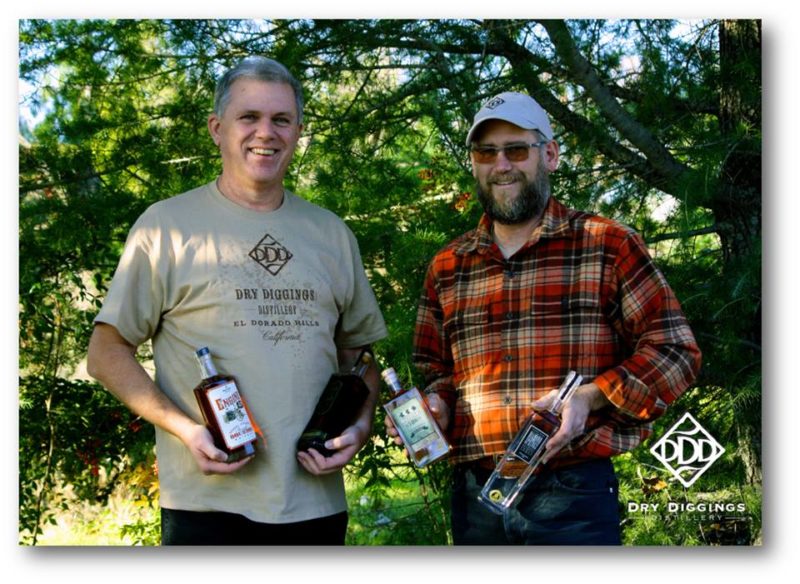 Gordon, I would like to kick off by asking what the backstory is to setting up the Dry Diggins Distillery, how you came to be involved and what drew you to the project?
Gordon, I would like to kick off by asking what the backstory is to setting up the Dry Diggins Distillery, how you came to be involved and what drew you to the project?
GH: Dry Diggings Distillery was the result of a shared interest in working with community we live in. Our area is surrounded by amazing breweries and wineries… so the missing component was spirits. The local business community was also very much behind us and our local county government as well.
Cris, please tell me how the distillery came about?
CS: Gordon and I were enthusiastic consumers of various spirits and have very different tastes. Combining our interest has brought the wide variety of projects we currently produce. We distill grains and fruits to make everything from unique brandies, vodkas, rum and whiskeys.
What have been the main challenges involved in setting up a new distillery?
CS: Setting up the distillery in California was a very difficult challenge. Looking back its tough to be really enthusiastic about doing it all over… knowing what we know now. The process was a constant battle of finding out how to overcome each hurdle, only to encounter something new that was thrown in front of us. Once we had the production side finished, we had started to build a tasting room… only to find out that we could not charge for tasting nor could we sell any bottles. The process took years and the good part that came out of it was assisting in founding the California Artisanal Distillers Guild. By getting the early founders of the distilling community involved we were able to change state laws and assist each other in many of the early problems. The proliferation of new distillers in California owe much to the early DSP’s.
What exactly does your job entail?
CS: We constantly find ourselves with new job skills. We have 2 part time employee’s and a band of independent consultant who help do all the things we need done. Our employees help both the retail side and with the production side. We have an assistant distiller and a tasting room employee (my daughter Erica). They constantly help each other as well, the job titles are just primary responsibilities. With such a small staff we constantly do anything that needs to be done. We design our own labels, order our glass, order grains/fruits, design/repair equipment, ferment, distill, wholesale/retail sales, find new products for gift shop, tasting events, charity work, tax paperwork, production tracking… you get the idea. Owning a distillery is 36 hours a day and 9 days a week.
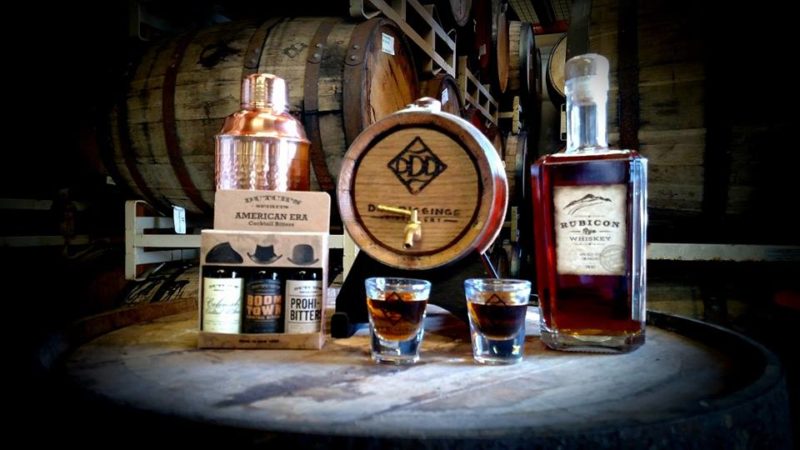 What whiskey expressions do you currently produce, and how are they all different?
What whiskey expressions do you currently produce, and how are they all different?
CS: Our whiskey products fall into the Rye Whiskey, Bourbon and Single malt categories. We have always been a “producer” as well as a “distiller” of whiskey. Some of what we do here involves the barrels, weather and finishing of products for bottling. We also start with grain and ferment, distiller, age and finish whiskey here as well. All our products take advantage of the type of weather and cycles of heat/cold and lack of humidity that we enjoy. Another component of our final style is the water we use… our style utilizes very clean and “completely neutral taste” water. Local water makes a huge difference in the way products end up tasting… so no matter how we design a product all these components end up with a big influence on the bottles.
Apart from the weather (if relevant), why did you set up a distillery in California?
CS: We chose California for many reasons, but the biggest is this is where we know the community, the farmers and the weather. If we were doing this for any other reason, it probably would not make much sense. Northern California and the foothills of the Sierra Nevada Mountains provides so much of what’s in the bottle and our brand style.
Walk us through the distillation process. From grain to glass? Is there a flavor profile you’re looking for before bottling the whiskey?
CS: Our grain side of the business utilizes our local breweries. We are very proud to have some of the finest brewers in the country in our back yard. Our whiskeys are designed and the first step is done offsite at several local breweries. We mash and brew the wash in their facilities and then transport via totes to our fermenters here in the distillery. DDD propagates our own yeast blends and ferments in our sealed stainless steel fermenters, then uses our stainless still to strip and the copper still to do final runs before barreling. We find working cooperatively helps us in many ways, and adds to our creative environment as well.
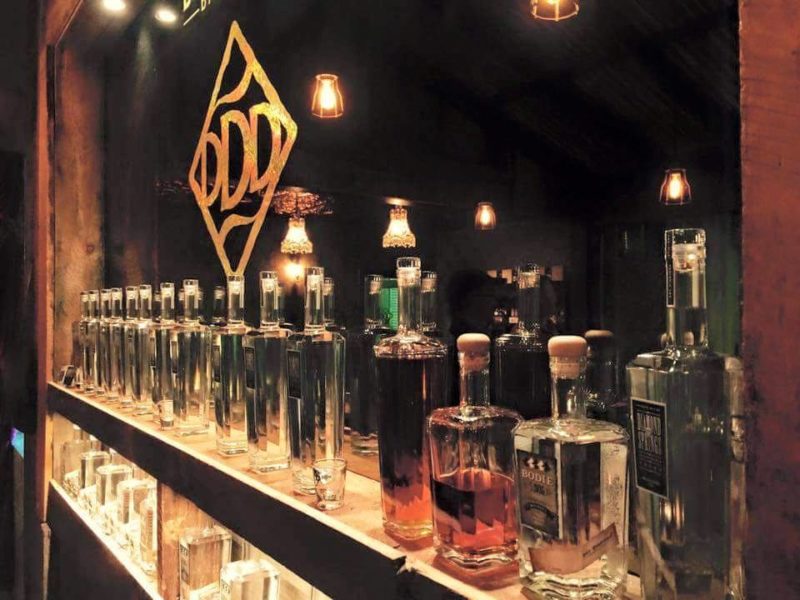 Do you believe now is the most exciting time for a whiskey lover?
Do you believe now is the most exciting time for a whiskey lover?
CS: It’s always been a great time to be a whiskey lover, but now is the time of incredible choice. The distilling world is truly a global community. From Tazmania, Japan, India, Canada and of course Ireland, Scotland and the United States… all showing how versatile the spirit can be. The irony is… its also been a time to see many who jump into the business to simply make money and don’t care about the significance of what this business really is. I have found DSP’s across the globe both big and small to be a great group of people to know and learn from. It’s been a great experience.
Does the climate and geographic location affect the maturation of your whiskey?
CS: Our weather is the biggest single component of our style. We have extreme temperatures here year round. An average day sees no less than a 20 degree temperature swing, and we also have many days with 30, 40 and 50 degree swings in a 24 hour period. This combined with very low humidity makes our barrels work extremely hard. Our warehouse remains un-insulated and we do not artificially heat nor cool our barrels… so the weather does what it does each day.
Do you source all the ingredients locally?
CS: We source many of our ingredients locally, but do not limit ourselves to that ethos. Our idea is to buy the best available and use them to the best our abilities. We are not farmers, but having so many amazing growers in our backyard gives us the knowledge base. We also have the UC Davis University very close by, and the incredible programs they have help us all. Our wine, beer and distilling communities have some unbelievable talent right on tap.
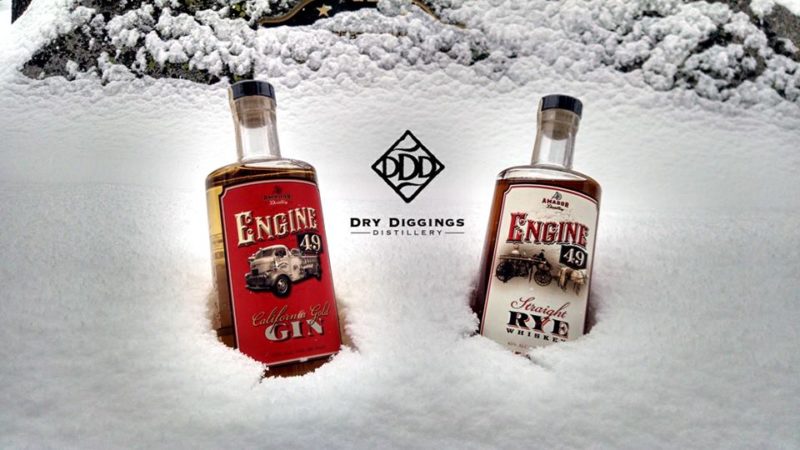 How do you expand your whiskey nationally? Any plans to do so?
How do you expand your whiskey nationally? Any plans to do so?
CS: Our customers have taken our bottles global. We have never sold a bottle outside of California, and we have really pulled back our distribution over the last year. Most of what we do is sold now in our backyard, and distribution will be approached with a more modern plan. Our production scale does not lend itself to becoming a huge enterprise, we are a local small scale DSP who believes organic growth fits our model.
What is in the pipeline for 2017 that we should look out for?
CS: 2017 has us unleashing a couple of new whiskeys… actually washes designed by brewers who want to push the envelope. Very small scale and very interesting. We are also going into some more Gin projects, of course all this is on top of the 21 brands we already bottle. The tasting room keeps growing and of course distribution in our new model will be a focus. The main key is always our local customers and the people who search us out. The public has always been amazingly supportive. We are not looking to be the next fad… we want to look back years down the road and smile.
Anything else you’d like to share with our readers?
CS: I would say in wrapping this up… don’t limit yourself. The modern distillery experience can incorporate so many different projects… try them all. I am a whiskey guy, some would say before that I was a Tequila guy… but, I have always been willing to try something that was made with passion. Listen to who’s behind the tasting room bar and try something they suggest.
For more information on the distillery, please see the links below:
website: DryDiggingsDistillery
facebook: @DryDiggingsFacebook


